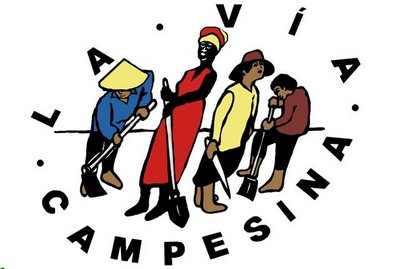
 To that end La Via Campesina has come out with a statement about how food sovereignty is connected to ending all forms of injustice against women.
To that end La Via Campesina has come out with a statement about how food sovereignty is connected to ending all forms of injustice against women.
Women united for food sovereignty and against violence towards women
 Raj Patel expands on this in his book The Value of Nothing
Raj Patel expands on this in his book The Value of Nothing
'”At their conference in Maputo, Mozambique, in 2008, La Via Campesina cam up with a new slogan and series of strategies around food sovereignty in which they’re explicitly targeting transnational corporations, in a move that focuses and unifies its various branches. the new slogan is the most revealing, because it put’s society's most pervasive inequality of power front and center “Food sovereignty is about an end to all forms of violence against women.”
…their latest declaration shows an understanding of hunger as the most recent manifestation of millennia of exploitation, and of the distortion of relationships around how value is set. they diagnose the problem of hunger and poverty not as a shortage of food but as a lack of power…La Via Campesina (is) organizing their countermovement in response to the spread of capitalism that not only turns land work into commodities, but turned workers themselves into private property.” (p. 124, 125)
 So then I suspect that the work that MCC is doing will actually be framed with a good deal of what might legitimately be called violence as it works proactively to address the injustices of places like Nepal.
So then I suspect that the work that MCC is doing will actually be framed with a good deal of what might legitimately be called violence as it works proactively to address the injustices of places like Nepal.
No comments:
Post a Comment